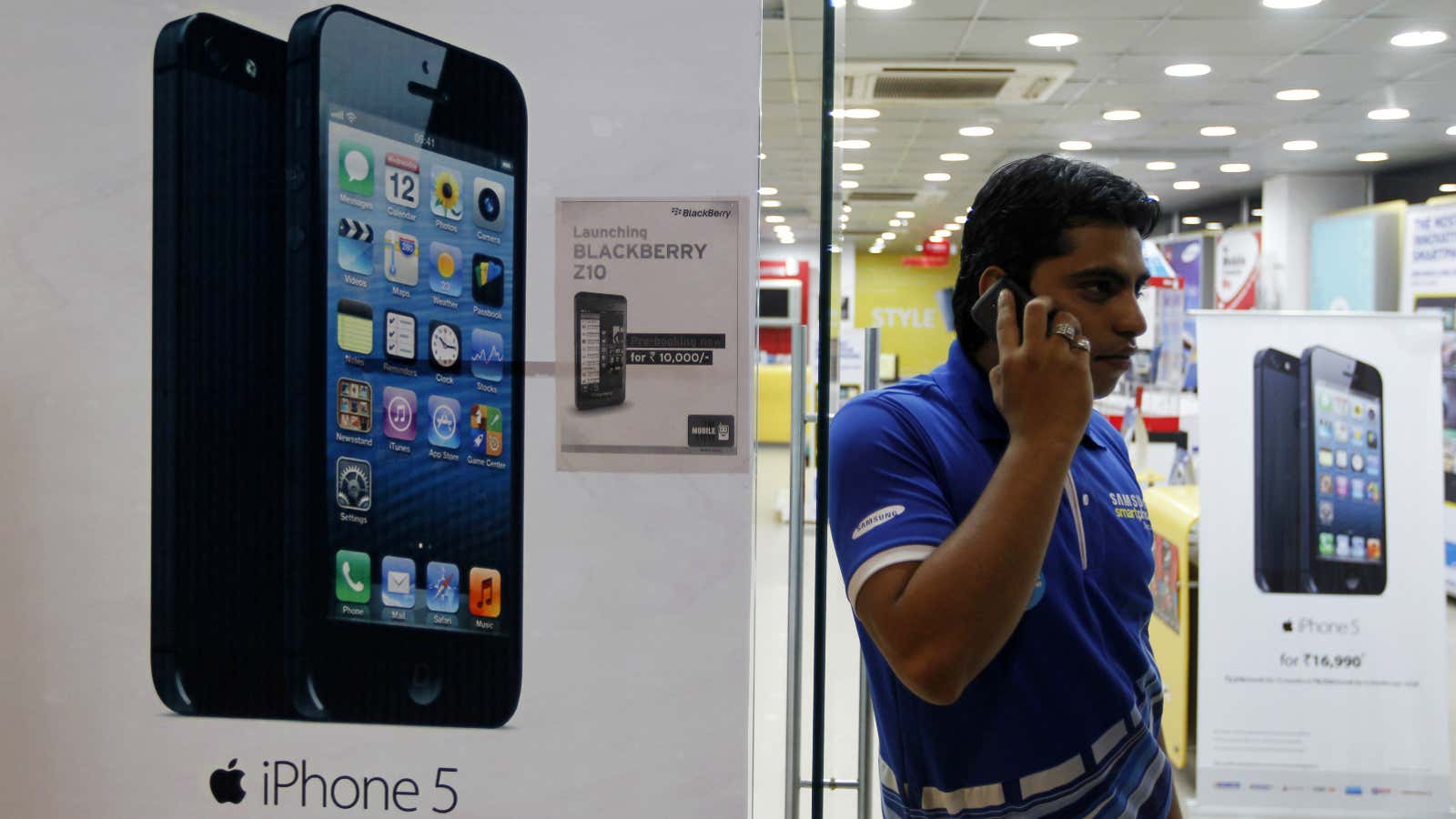A week after Apple announced a massive 58% jump in quarterly sales in India, the Cupertino-headquartered giant’s plan to sell refurbished iPhones in Asia’s third largest economy has reportedly hit a policy roadblock.
“India has rejected Apple Inc.’s request to import and sell refurbished iPhones to the world’s second largest mobile population,” Bloomberg reported on May 03, citing a telecommunications ministry official. “The U.S. company’s application has been turned down, the official said, asking to not be identified, citing official policy.”
Apple declined to comment on the queries mailed by Quartz. But a source familiar with the company’s conversation with government officials said that discussions are still on and a “decision is yet to be reached.”
If the decision indeed goes against Apple, it would severely dent the company’s plans to find a bigger market in India.
Even a decade after the company first started selling phones in India, the country accounts for just about 1% of global iPhone sales in terms of both volume and revenues, according to estimates by market intelligence firm Counterpoint Research.
Refurbished phones, which come cheaper than new ones, could possibly help change the situation in a market where 70% of smartphones sold are under $150. Currently, India’s 220-million-strong smartphone market is dominated by Asian phone makers such as Samsung and homegrown players like Micromax.
“India’s socio-economic structure is very different from Apple’s larger markets like the US and China. Indians’ buying capacity is far lower, and at current price points, iPhone will continue to remain only aspirational in the near-term,” Tarun Pathak, senior telecom analyst at Counterpoint told Quartz late last month .
In particular, the Indian government is apparently worried that opening the market to used phones could turn it into a dumping ground for e-waste. Last year, a similar proposal by Apple to import used iPhones and iPads in India’s “refurbished electrical and electronic equipment” market was red-flagged by the environment ministry’s technical review committee, citing impact of hazardous e-waste of such products.
“The government is (also) apprehensive since it feels that such a move will open up a grey market area for refurbished goods,” said an analyst tracking the sector, who did not wish to be identified.
Wanting a bigger bite
Apple’s interest in India comes at a time when the company has reported a 58% increase in iPhone sales in the country. “We’ve been working (in India) with great energy over the last 18 months or so, and I am encouraged by the results that we’re beginning to see there,” Apple chief executive Tim Cook said during the recent earnings call.
This is in contrast to sales in China—the company’s growth engine, for long—where revenues fell for the first time ever. Global sales of iPhone, which make up an overwhelming majority of Apple’s sales, fell by about 10 million units from the previous year.
In such a scenario, Apple is making attempts to tighten control over the Indian market, seeking the government’s permission to open fully-owned stores in the country.
A recent committee approved the company’s plans to sell iPhones through fully-owned stores in India, relaxing the otherwise stringent norm. According to the current norms, 30% of goods sold in single-brand stores have to be sourced from India. But the approval is awaiting clearance from India’s finance ministry.
For now, Apple is still waiting to unlock its fortunes in India.
